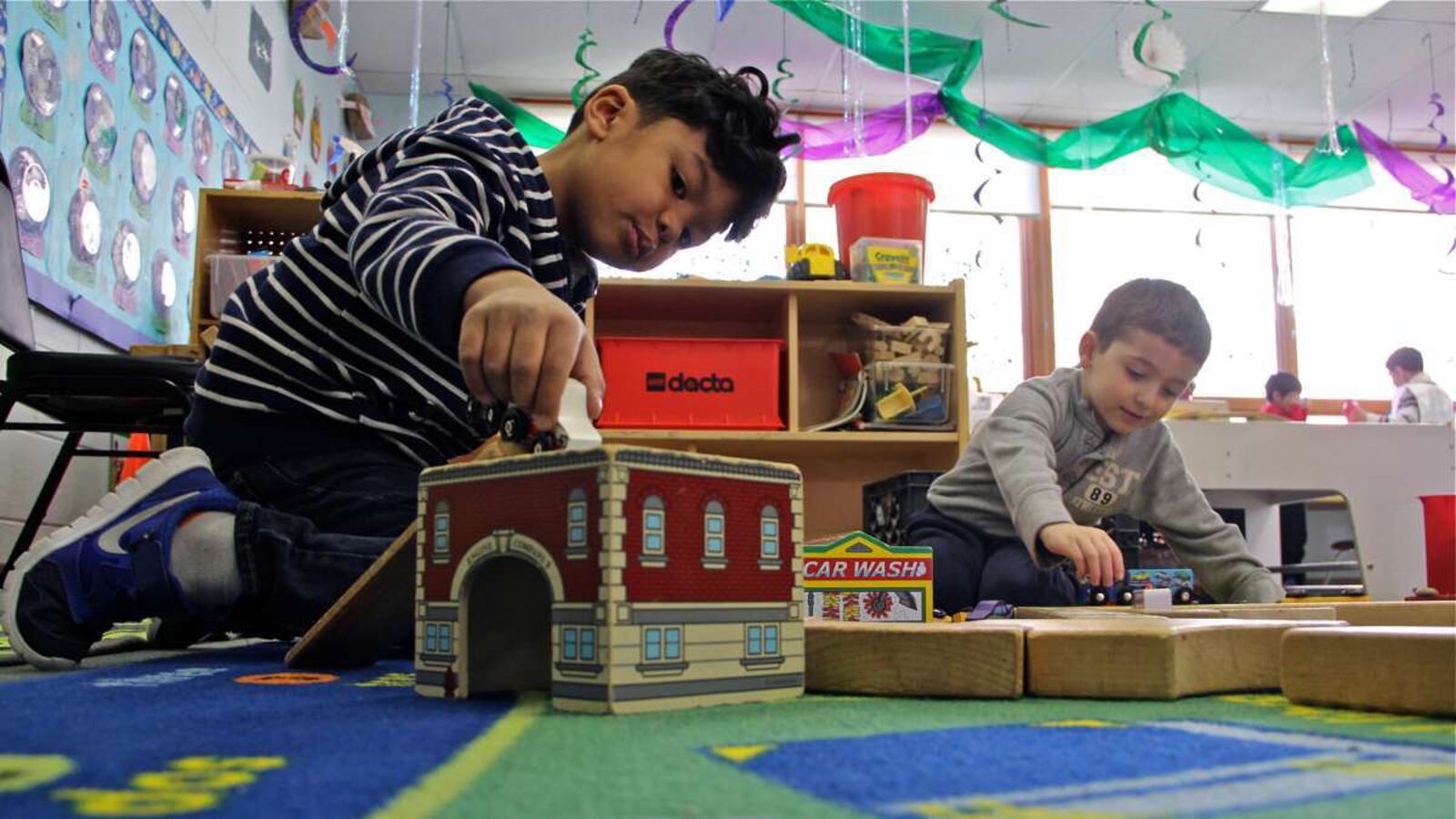This article was originally published in The Notebook. In August 2020, The Notebook became Chalkbeat Philadelphia.
Your browser does not support the audio tag.
One Wednesday morning at the Paley Early Learning Center in Northeast Philadelphia, 4-year-old Quincy was learning how to write the letter ‘L’. Tracing arrows with his finger, he repeated after his teacher the different parts of the letter: a long line and a short line.
Quincy is one of about 13,000 pre-K students in Pennsylvania’s Pre-K Counts, a program for families making less than 300 percent of the poverty level. For context, about 39,000 children in Philadelphia alone qualify for the program.
Other kids might soon have a chance to enter free pre-K. Gov. Wolf’s new budget proposes a "down payment" on early education spending, in the form of an additional $100 million to Pre-K Counts and $20 million more for Head Start next year.
That’s a lot of building blocks.
Pre-K, or preschool, is just one big-ticket item in a $1 billion state education budget increase. Although pre-K spending sometimes enjoys bipartisan support — and has received calls for action from the White House — committing funds to early education is a tough sell in times of budget scarcity. But advocates hope that the long-term promise of pre-K spending will outweigh short-term financial squeamishness.
Pre-K vs. baby-sitting
Maddy Malis, CEO of the Federation of Early Learning Services (FELS), flips through a thick book of curricula for preschoolers. "Creative expression, social studies, scientific thinking, mathematical thinking, language and literacy learning through play …" The list goes on.
FELS runs the Paley center and eight other early-education centers in and around Philadelphia. Malis said that these lessons — and having accredited teachers to pursue them — distinguish a good preschool from run-of-the-mill child care.
Even among others in the preschool business, Malis said, she finds misconceptions that she has to correct about what makes preschool high-quality. One colleague at a local community center, she said, "was clearly under the impression that we provided baby-sitting for low-income, welfare moms. … It conjured up such a negative connotation, and it couldn’t be further from the truth."
Programs such as Pennsylvania’s Pre-K Counts, which Wolf wants to expand, do offer subsidized child care to eligible families. But their aims go far beyond baby-sitting.


